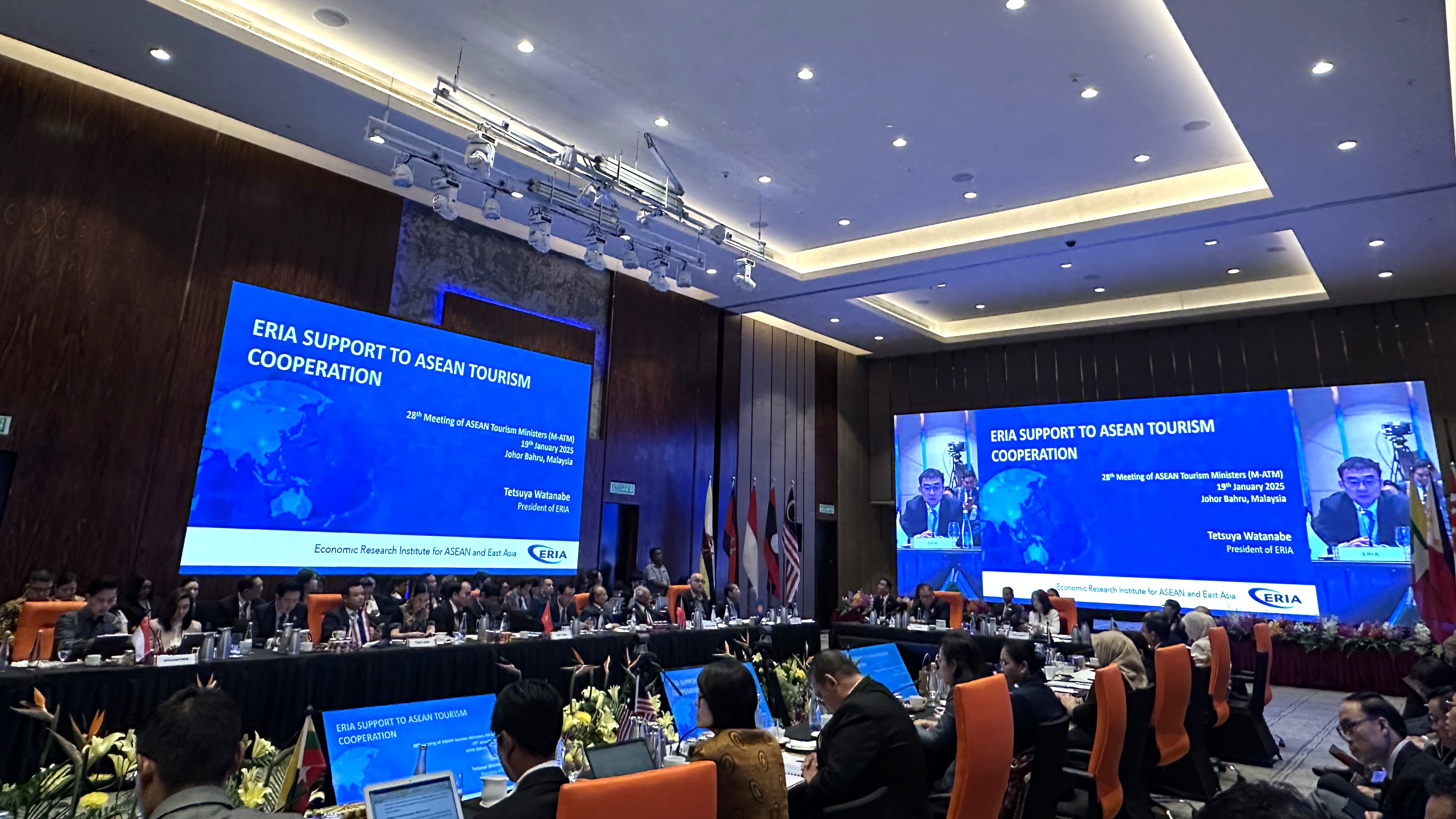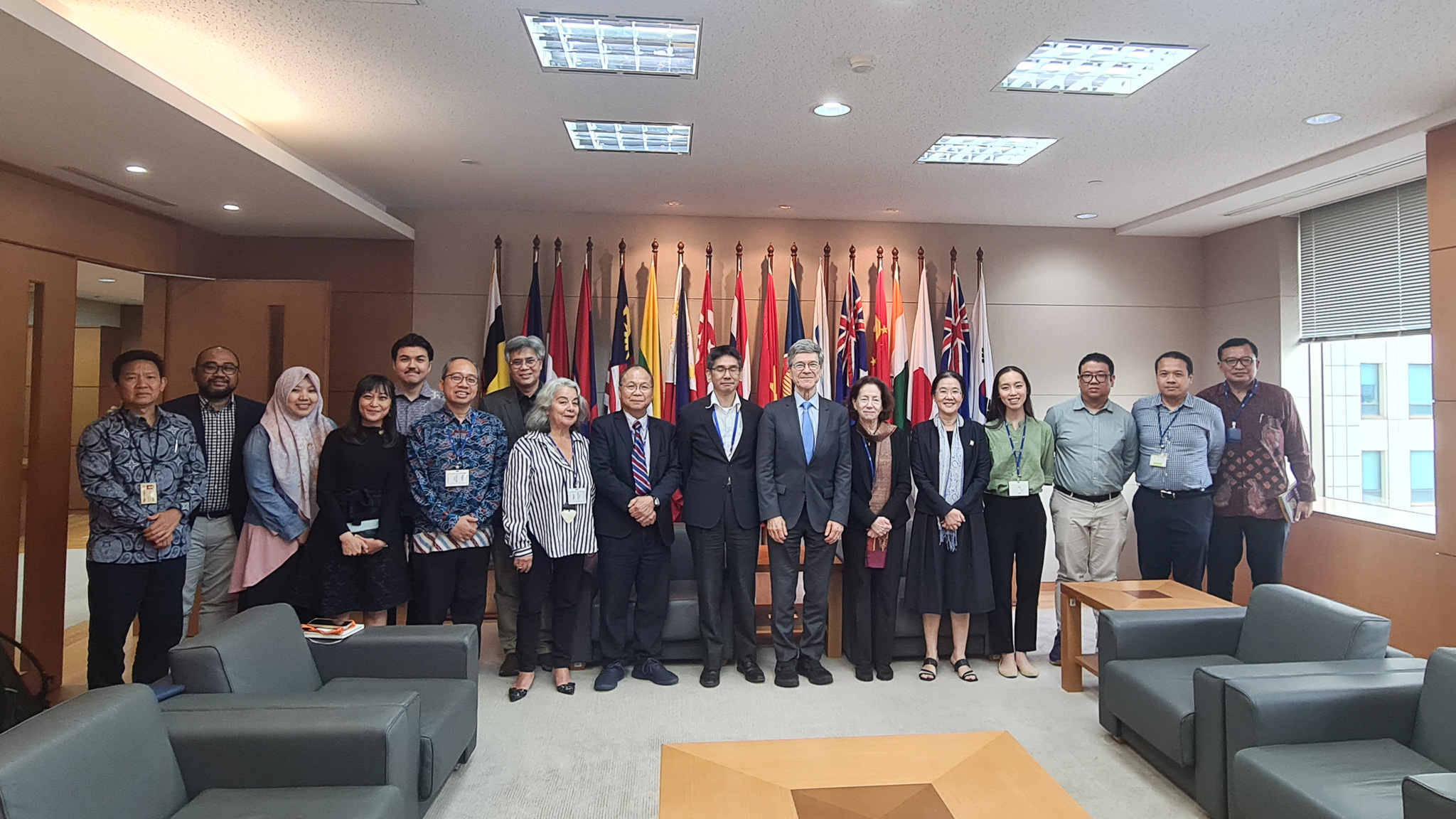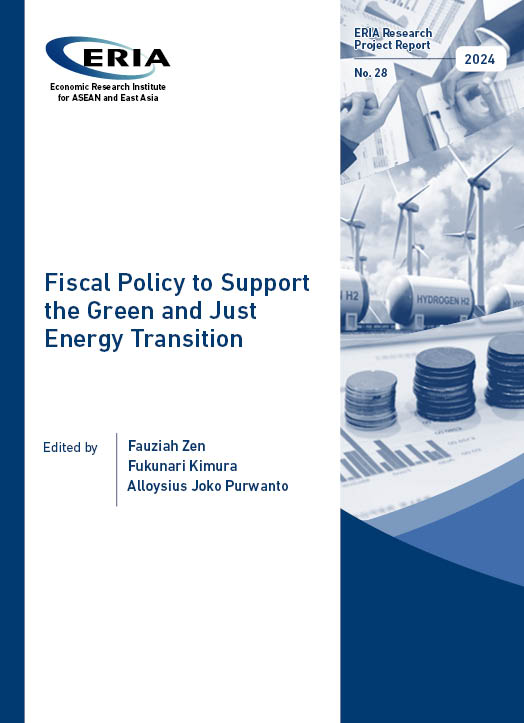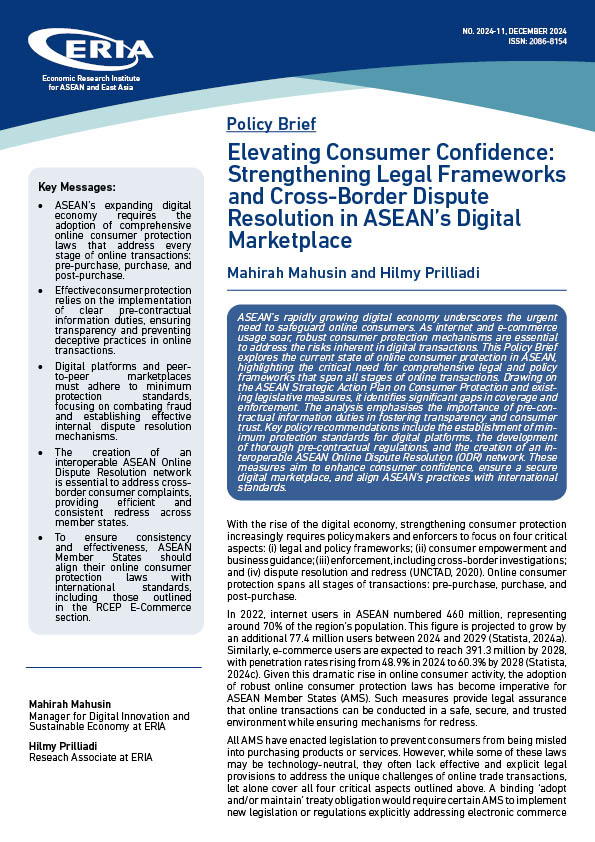ERIA Co-Organises Policy Seminar on Sustainable Housing, Buildings, and Cities
Date:
14 January 2025Category:
NewsTopics:
Seminar, Urban DevelopmentShare Article:
Print Article:
Jakarta, 14 January 2025: ERIA successfully co-organised a Policy Seminar on Sustainable Housing, Buildings, and Cities at Fairmont Hotel, Jakarta, on 14 January 2025. This seminar is co-organised with Ministry of Housing and Settlement Areas (PKP) Republic of Indonesia, Organisation for Economic Co-operation and Development (OECD), Japan International Association for the Industry of Urban Development, Building, and Housing (JUBH), and Building Center of Japan (BCJ), with support from the Embassy of Japan in Indonesia, JICA Indonesia Office, JETRO Jakarta Office, Indonesian Chamber of Commerce and Industry (KADIN), and The Jakarta Japan Club. By gathering diverse stakeholders with local and international perspectives, this seminar provides an opportunity to share experiences and discuss policies to promote sustainable urban development.
In his opening remarks, ERIA President Tetsuya Watanabe emphasised a critical challenge this seminar aims to address: balancing rapid urbanisation, housing affordability, and environmental sustainability. ‘Integrating energy efficiency, superior materials, and smart technologies into urban planning is not just desirable – it is a necessity,’ he stated. He also reaffirmed ERIA’s dedication to supporting transformative efforts in this domain, particularly through the ERIA-Digital Innovation and Sustainable Economy Centre (E-DISC) and Asia Zero Emission Centre. Building on this theme, Yoshiki Takeuchi, Deputy Secretary-General of OECD, underscored in his keynote speech that cities are at the frontline of combating climate change. Globally, cities contribute two-thirds of greenhouse gas emissions and are particularly vulnerable to the adverse impacts of climate change. Takeuchi highlighted how smart city solutions can not only accelerate the transition to net zero but also promote inclusive growth.
Shared experiences between Indonesia, Japan, and the global community were central to the discussions in this seminar. Setting the context for Indonesia, Fahri Hamzah, Vice Minister of Housing and Settlement Areas, emphasised the nation's housing backlog and outlined policy directions to be pursued by the new Ministry. As rapid urbanisation drives housing shortages worldwide and climate disasters continue to worsen, Indonesia has prioritised green, resilient, and affordable housing. Japan has similar ambitions, as exemplified in the keynote speeches of Masao Omori, Mayor of Okayama City, Japan, and Itsuhiro Miura, Deputy Director-General for Housing and Urban Policy, Ministry of Land, Infrastructure and Transport (MLIT) Japan, amongst others, who shared insights from Japan’s housing policy. With experts, government officials, and private stakeholders as speakers, the seminar created a platform to exchange lessons learned, explore innovative solutions, and leverage global experiences to shape sustainable and inclusive cities for the future.
In addition to the diverse speaker lineup, the panel discussions explored critical themes in depth. Panel Discussion I discussed net zero and housing affordability, while Panel Discussion II discussed urban growth and environment. Moderated by Norihisa Shima, Associate Professor at Toyo University, the two sessions discussed effective urban policies that address housing issues while also promoting the energy transition and environmental sustainability. Valuable insights were drawn from the experiences of Indonesian cities such as Jakarta, Tangerang, and Surabaya, Okayama City in Japan, and OECD countries. Panel Discussion III discussed digital technology and smart cities, diving deeper into how a robust digital ecosystem can drive sustainable urban development. Moderated by Fauziah Zen, Senior Economist at ERIA, this session discusses Indonesia’s national framework for smart city initiatives by regional governments and private housing developers, and the role of smart city solutions in advancing decarbonisation efforts.
An exhibition showcasing Japanese companies involved in housing and urban development was held on the day of the seminar, followed by a business seminar the next day. These events served as platforms for the private sector to demonstrate their potential contributions to sustainable urban development, a key support factor frequently highlighted during the policy seminar discussions. The insights gathered from both the policy and business seminars can play a pivotal role in advancing sustainable and liveable urban development in Indonesia, while fostering potential collaborations among the government, experts, the private sector, and international organisations.

.jpg)
.jpg)
.jpg)






